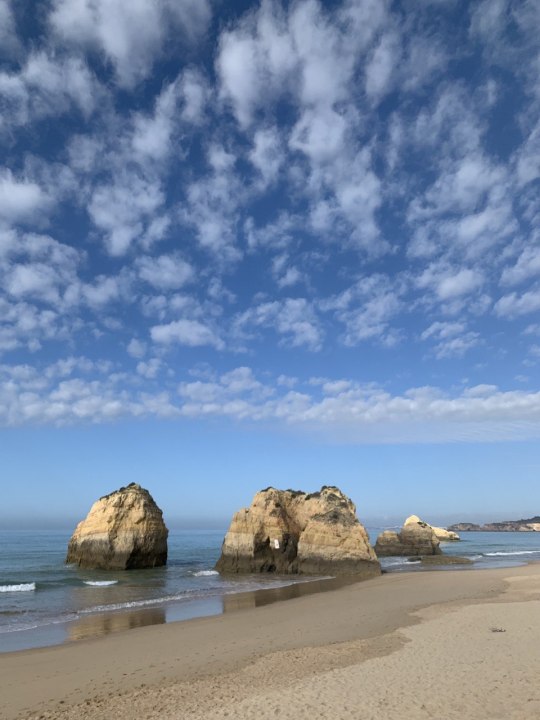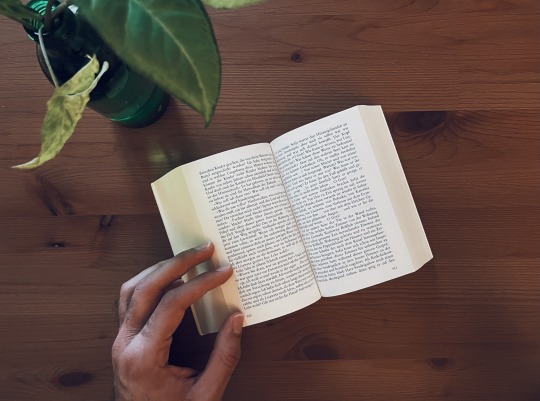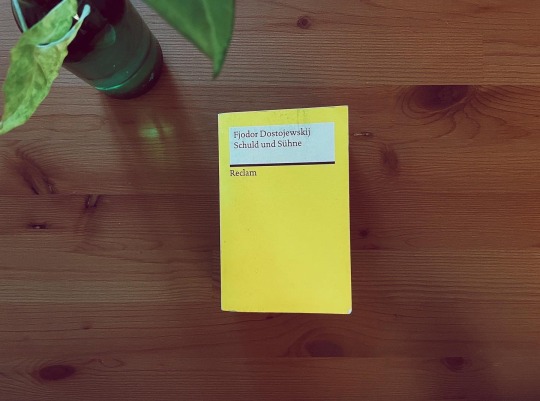Don't wanna be here? Send us removal request.
Text
Sometimes I just happen to think of TBK and start crying silently in public.
#fyodor dostoevsky#the brothers karamazov#fjodor dostojevski#fjodor dostojewskij#dostoevksy#fyodor dostoyevsky#tbk
9 notes
·
View notes
Text

I took this photo one year ago in Algarve, on the spot where I was sitting while reading the chapter "Rebellion” from Book V, “Pro and Contra”, for the first time. A key memory.
“The Brothers Karamazov” is literally the best novel of all time.
11 notes
·
View notes
Text
Woke up this morning thinking about this scene:

“He’s made of wood too. Why do they like him, and not me?”
and how it’s such a subtle and masterful callout of the Catholics who don’t even seem to realize that they’re failing one of the most basic tenets of their faith. Like yeah, speaking as an insider, one of the most common failings of people who claim to be Catholic is that they think they’re immune to or above certain human behaviors, but in actuality they’re just as capable of pride and hatred as the people who crucified Jesus were. It’s so easy to get caught up in a sense of moral superiority that it can make you entirely blind to the whole point of Christianity–humility and unconditional love. And that kind of thing is what makes outsiders think that it’s our faith that’s the problem, when it’s actually our failure to live out that faith that hurts people. And Del Toro manages to capture that entire discussion in just a few scenes and a handful of words without ever coming across as spiteful or angry and HAVE I MENTIONED THAT THIS MOVIE IS VERY GOOD? HAVE YOU PICKED UP ON THAT YET?!
10K notes
·
View notes
Text

Verily, verily, I say unto you, Except a corn of wheat fall into the ground and die, it abideth alone: but if it die, it bringeth forth much fruit. (John 12:24)
1 note
·
View note
Text


The Cathedral church of Christ the Saviour in Pristina, Kosovo, is an unfinished Serbian Orthodox Christian church whose construction began in 1992. Due to have been completed in 1999, its construction, on the campus of the pre-war University of Pristina, was interrupted by the Kosovo War. (Source: Wikipedia)
2 notes
·
View notes
Text
„Hast du denn nicht schon hier an den Strassenecken Kinder gesehen, die von ihren Müttern auf den Bettel ausgeschickt werden? Dort können die Kinder nicht Kinder bleiben. Und doch sind die Kinder ein Ebenbild Christi: ‚Ihrer ist das Himmelreich.‘ Er hat geboten, sie zu achten und zu lieben; sie sind die Menschheit der Zukunft…“


#fyodor dostoevsky#crime and punishment#schuld und sühne#verbrechen und strafe#fjodor dostojevski#fyodor dostoyevsky#fjodor dostojewskij#russian literature#russian classics
1 note
·
View note
Text

„Noch ist die zentripetale Kraft furchtbar stark auf unserem Planeten, Aljoscha.“
#fyodor dostoevsky#the brothers karamazov#die brüder karamasow#fjodor dostojewskij#fjodor dostojevski#dostoevsky#alyosha karamazov#dmitry karamazov#ivan karamazov#russian literature#russische literatur#the grand inquisitor#der grossinquisitor#literature#russia#russian
1 note
·
View note
Note
I’ve seen someone on Tumblr saying: “I’m reading ‘The Brothers Karamazov’ and ‘The Grand Inquisitor’ was so good but now I got to the part about Zosima and it’s so dense/boring.”
I am aware that ‘The Grand Inquisitor’ is one of the greatest pieces of literature to exist and I mean no disrespect but Book IV, ‘The Russian Monk’ is my favourite part of TBK. It gives me goosebumps and makes me cry tears of joy every time I reread it.
I’ve seen many people saying they disliked ‘the Zosima part’ and it makes me question if I’m overreacting. How come I’ve only seen people saying that it’s a boring part of TBK? Am I overreacting by thinking it’s the best part?
Oh no. One thing that amuses me is the idea that "The Grand Inquisitor" can or should be read on its own. It shouldn't be. If you read that as an excerpt without the context of the entire novel, there's a pretty significant chance you're going to come away thinking the novel has the exact opposite message that it actually has.
"The Russian Monk" might seem a bit sermon-esque but it's no more preachy than "The Grand Inquisitor" in theory; in fact, it's crucial to countering the philosophy of TGI. And to read it as preaching I think would actually also be wrong--the context is a dying man trying to explain his thoughts to a boy he loves like a son. He's not trying to counter TGI so much as he's just speaking about things he finds beautiful. It also establishes the novel's themes and how to interpret the events to come.
So yeah, I agree. It's the best part.
38 notes
·
View notes